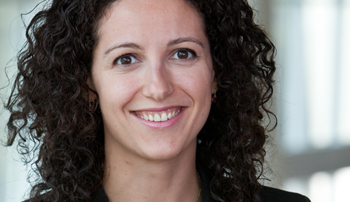Safety in the workplace should be a given, said Lina Lander, Sc.D., assistant professor of epidemiology in the College of Public Health.
“Occupational injuries result in significant burden for injured workers, their families, employers, and society,” she said. “Workers should expect to return home unharmed.”
 |
Linda Lander, Sc.D. |
She came to Nebraska to study risk factors for laceration injuries among meatpacking workers. After completing her doctorate degree from Harvard University, she decided to make Omaha her home having fell in love with the state, its people and UNMC’s new College of Public Health.
Injuries aren’t a necessity
Over two years the research team recorded 300 incidents, many of which were preventable.
“We are working collaboratively with meatpacking plants and colleagues at the University of Nebraska-Lincoln, Harvard, Johns Hopkins and George Washington University to develop interventions based on our data,” she said. “Workplace injuries should be eliminated. I applaud our collaborating meatpacking plants for focusing on prevention.”
She now teaches advanced epidemiology research methods and has found a new passion.
“I love teaching and mentoring students. They are a terrific group,” she said.
Other avenues open
Meanwhile, her field work continues to expand. Every year there are more than 100 gun-related injuries in Omaha. Many of these are preventable.
Dr. Lander is working with Melissa Tibbits, Ph.D., assistant professor in health promotion, social and behavioral health, to better understand the risk factors associated with youth violence. This new research project was funded by the Omaha Community Foundation Violence Reduction Fund and the College of Public Health.
Understanding leads to solutions
They work closely with Jannette Taylor of Impact One and other community leaders to understand trends, risk factors, and preventive factors for violence-related injuries.
“We want to understand the underlying factors that are associated with violence-related injuries including individual, social and community factors,” Dr. Lander said. “This will help us determine Omaha-specific preventive interventions that will reduce violence-related injuries in our community.”